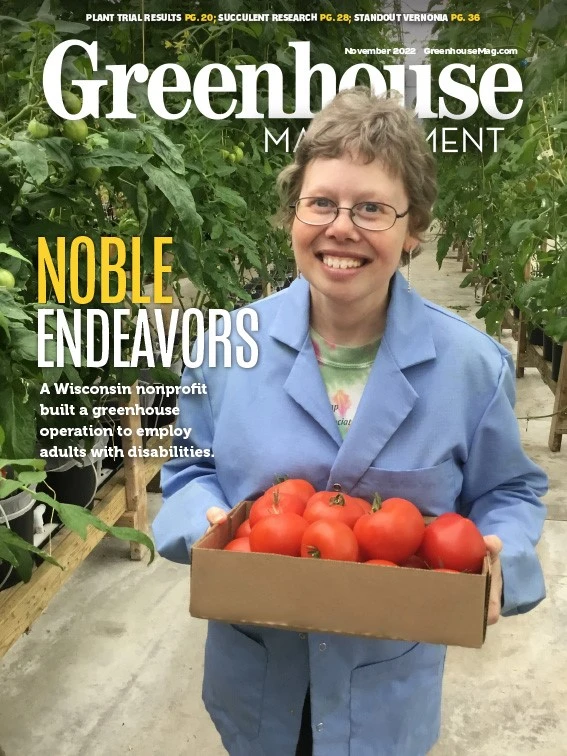
Gary Vollmer is a self-described plant geek. For him, there’s nothing better than being around plants and the people that grow them.
“My grandfather was an avid gardener and I got into gardening as a kid by helping him out,” Vollmer says. “But I also spent high school working in greenhouses and on golf courses, and enjoyed working with plants.”
A graduate of North Carolina State University, Vollmer has degrees in horticulture and integrated pest management. During college, he says, he worked in pathology and other disciplines, but really honed in on ornamentals as his focus after graduating.
Vollmer worked at various kinds of growers after college, ranging from a nursery in North Carolina to a tropical grower in Florida to a bedding plant grower in Michigan. Then he spent 15 years at Smith Gardens in Washington State as a production and planning manager.
“Every place you go, you pick up more experience,” he says. “My first job was as a propagator at Wells Nursery, and the reason I took that job was because the father of the nursery owner wrote the propagation textbook that I had used in college. So I was intrigued. I pursued that job because it was on the front edge of the business. When I worked at Four Star [in Michigan], they were on the forefront of technology. It was an opportunity to expand what I knew.” He also ran his own greenhouse (J-n-G Blooms) that focused on large hanging baskets.
Today, Vollmer is the global product and technical manager for Ball Horticultural Company, where he stays on the front edge of what’s happening in horticulture. Each fall, for instance, Vollmer travels around the country to different trials. There, he provides technical support to growers, particularly on poinsettias. Topics he works on with growers include when to apply growth regulators at the right time, leaf spots growers need to identify, and how to deal with heavy winds that are damaging crops. It covers all stages, from cuttings to the finished product.
“I’m helping to find the right genetics that work in the right marketplace — helping growers grow poinsettias with different applications,” he says. “I do that work with other programs — pot carnations, kalanchoes — the products that are considered technical and we are working to introduce in North America.”
Vollmer describes his role as a “natural fit”.
“I’ve enjoyed doing this work,” he says. “And it’s been a very successful program. It’s a job that continues to grow and evolve as the industry grows and evolves. That’s really rewarding for me.”

Explore the November 2022 Issue
Check out more from this issue and find your next story to read.
Latest from Greenhouse Management
- Anthura acquires Bromelia assets from Corn. Bak in Netherlands
- Top 10 stories for National Poinsettia Day
- Langendoen Mechanical hosts open house to showcase new greenhouse build
- Conor Foy joins EHR's national sales team
- Pantone announces its 2026 Color of the Year
- Syngenta granted federal registration for Trefinti nematicide/fungicide in ornamental market
- A legacy of influence
- HILA 2025 video highlights: John Gaydos of Proven Winners





